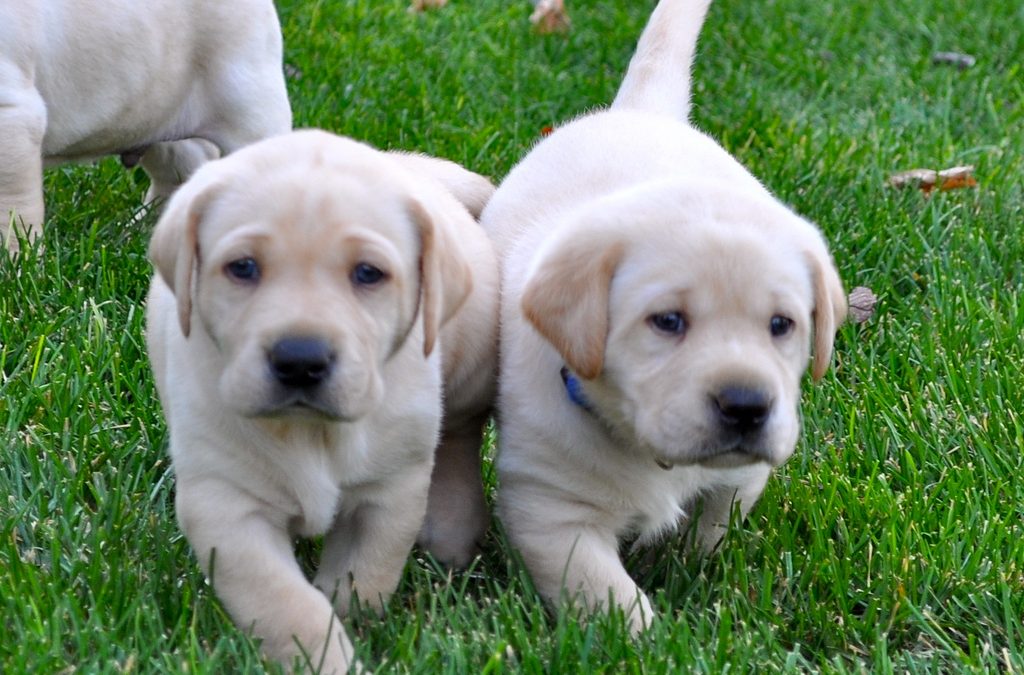Whether you know it or not, you started training your puppy from the minute you brought him home. Because dogs are rarely taken from their mothers before 6-8 weeks of age, she’d already begun your puppy’s training before you even met.
It’s Never Too Early to Train
In addition to socialization, it’s never too early to begin training other types of training with a puppy. Everything from shaping natural behaviors like elimination to better fit in a human world, to teaching a pup their name and foundational positions like sit and stay can begin right away.
Potty Training
For obvious reasons, this one is an essential and it all comes down to three simple steps.
- Celebrate and reward when your puppy potties in the correct location.
- If your pup goes in the wrong location and you see it happen, calmly interrupt them and immediately bring them to the correct location. If you do not actually see your dog have the accident, clean it up and hope to catch the next one. No amount of scolding will communicate what you did not like about their choice of toilet and all you you will be left with is a confused puppy. And NEVER hit your dog to dicipline them or for any reason.
- Supervision. The more accidents your puppy has that you don’t see happen, the more they learn that sometimes it’s okay to go in the house.
Guarding
Puppies have a natural inclination to protect the things they love including food, toys and friends.Taking objects away from your puppy when they are in the middle of enjoying them only teaches them to guard these objects, not to give them up. Instead, try redirecting your dog to another object in order to remove the first or trade them for something of high value.
Mouthing
Like human babies, puppies explore the world with their mouths, which means those razor sharp little teeth are never too far away. If your pup gets forceful with their nipping, let them know. Exclaim “ouch” and remove the body part they are chewing on for about 30 seconds. If that doesn’t calm them, after your next “ouch,” completely separate yourself from your pup for 30 seconds to see if they are willing to calm down.
Basic Obedience Training
Puppies can learn all of the basic cues that older dogs can including, down, how to shake paws and roll over. Start with the two foundational behaviors of “focus” and “sit.”
To Build Focus, Use Their Name
- Say your dog’s name in a happy tone of voice.
- When puppy turns towards you, say “Yes!” and reward them.
- With a little practice, your dog will learn not only their name but that when you call them, you require their attention.
Teaching "Sit"
- Begin by holding your hand flat with palm facing up. In the tips of your fingers hold a tiny treat right at your puppy’s nose.
- Slowly raise the hand above your puppy’s head. For their nose to follow the treat, it is most natural for them to lower their body into a sit.
- As soon as that butt hits the ground, say “Yes!” and release the treat.
Try this five times then try the same thing with no treat in your hand (still rewarding afterward).
If you follow these simple basics you will be well on your way to having an obedient puppy.

